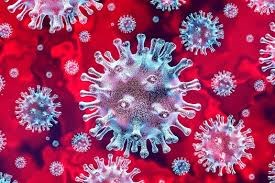AT least 1,500 volunteers equipped with masks, hand disinfectants, and tracking gadgets have today, Saturday, August 22, attended an indoor concert in Leipzig Germany as part of a study to simulate how the novel coronavirus spreads in large gatherings.
As part of the so-called Restart19 study, researchers from the University Medical Center in Halle wanted to find out how cultural and sporting events can safely take place without posing a risk to the population.
According to Reuters, volunteers were handed protective masks of the type typically used in hospitals and bottles of fluorescent hand sanitizer at the concert of German singer-songwriter Tim Bendzko in an indoor arena in Leipzig.
“I am extremely satisfied with the discipline displayed by the participants,” Stefan Moritz, the head of the study, told a news conference after the concert. “I was surprised how disciplined everyone was in wearing masks.”
He said the results of the study, which is being financed by the states of Saxony and Saxony-Anhalt, were expected in 4-6 weeks.
The participants were also given contact tracers to help track the distance between concert-goers and to identify in which parts of the arena, such as entrance halls and grandstands, people might crowd too closely together.
Researchers asked participants to regularly disinfect their hands using the fluorescent sanitizer so scientists can identify - with the help of ultra-violet light - which surfaces are touched frequently and pose a risk for spreading the virus.
Sporting events such as Liverpool’s Champions League football match against Atletico Madrid and the Cheltenham Festival, a horse-racing event in Britain in March, have been blamed for playing a role in spreading COVID-19.
Most events with big crowds have been put on hold.
A decision to grant approval for a concert of German singer Sarah Connor with 13,000 attendees on September 4 in Duesseldorf has faced sharp criticism by virologists and local politicians.
Meanwhile, with 374, 077 cases tested in Nigeria, total confirmed cases have risen above 51,000 (51, 304), according to the Nigeria Centre for Disease Control (NCDC).
NCDC's situation report 175 summarises that,v "Three hundred and forty (340) confirmed cases were reported in the last 24 hours from 19 states as highlighted below."
Kaduna (63), FCT (51), Plateau (38), Lagos (33), Delta (25), Gombe (21), Adamawa (21), Edo (20), Katsina (17), Akwa Ibom (11), Ekiti (10), Rivers (9), Ondo (5), Ebonyi (4), Cross River (3), Ogun (3), Sokoto (2), Imo (2) and Nasarawa (2)
Progressively, three hundred and sixteen (316) discharges have been reported in the last 24 hours in 16 states – Borno (54), Plateau (53), Kaduna (47), Kano
(45), Adamawa (36), Lagos (28), Akwa Ibom (12), FCT (11), Ebonyi (10), Ekiti (6), Edo (5), Ogun (3), Rivers (2), Osun (2), Gombe (1) and Bayelsa (1).
Regrettably, four (4) deaths were reported in the last 24 hours in two states – Adamawa (3) and Ogun (1).
Generally, all 36 states in Nigeria, and the FCT, have reported at least a confirmed case.
Dr. Osagie Ehanire, Nigeria's Minister of Health has yesterday briefed the World Health Organization (WHO) during the world weekly information session on Nigeria's responsive measures in curtailing the spread of the virus.
He pledged Nigeria will continue her responsive strategies to combat the spread of COVID-19 in the country
https://twitter.com/DrEOEhanire/status/1296741788510818304




